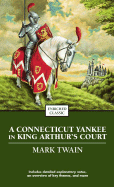What is a Classic?
Quite often people complain to me about classics. "Why do they call this a classic? I hated it. It was boring, depressing, and not particularly well written, as far as I can tell."
Are they right? Can something earn a place in the canon of English literature and still be boring and unimpressive? The answer: it all depends on your point of view. Let's take a few examples:
Charles Dickens' Oliver Twist: a book with a ponderous introduction, two-dimensional characters and fairly predictable plot points. Why does it get to be counted among the classics? Because it was new and
 innovative in its approach to realism and because it, along with the rest of his corpus, forms a significant building block in the social and ethical consciousness of the western world.
innovative in its approach to realism and because it, along with the rest of his corpus, forms a significant building block in the social and ethical consciousness of the western world. Beyond it's historical significance, Oliver Twist has a historical context that greatly affects its style. During the last sixty years or so, stylistic norms have migrated from a descriptive, narrative style to style which prefers dialogue and informs its readers through dense introductory sections. Due to our modern culture's obsession with easily digestable entertainment, current trends in style have declared narration boring and introductions a waste of the reader's time. Now readers expect action from page one, explanation as the story unfolds, and a rapid, if not frenetic, plot pace.
So, does it get to be a classic? Sure. It paid its dues and it is truly significant for the development of western realism and ethical judgement. Does that mean it's an easy read and that everyone should pick it up? No. People who want an easy read should try something a little lighter.
 Don't worry, if you can't hack such serious material, but you still want to start building your classical literacy, start with something a little more accessable; I suggest Mark Twain's A Connecticut Yankee in King Arthur's Court. It isn't too heavy, but it does tell an interesting story, while unobtrusively approaching important issues like democracy and monarchy, the corrupting yet progressive force of technology, and the nobility and ignorance of the lower classes.
Don't worry, if you can't hack such serious material, but you still want to start building your classical literacy, start with something a little more accessable; I suggest Mark Twain's A Connecticut Yankee in King Arthur's Court. It isn't too heavy, but it does tell an interesting story, while unobtrusively approaching important issues like democracy and monarchy, the corrupting yet progressive force of technology, and the nobility and ignorance of the lower classes.-Ty

0 Comments:
Post a Comment
Subscribe to Post Comments [Atom]
<< Home